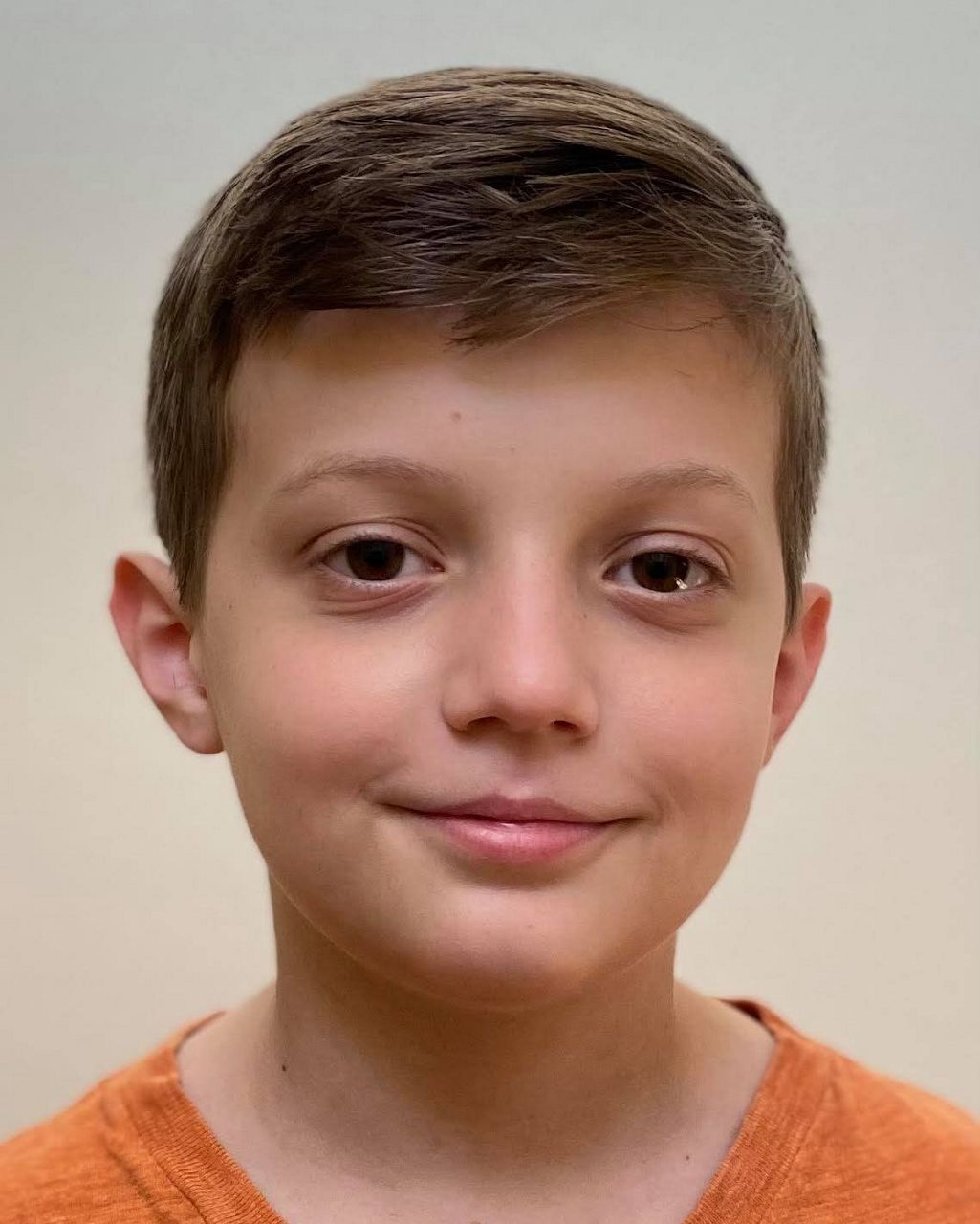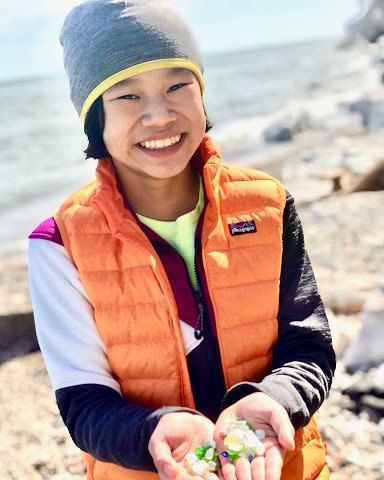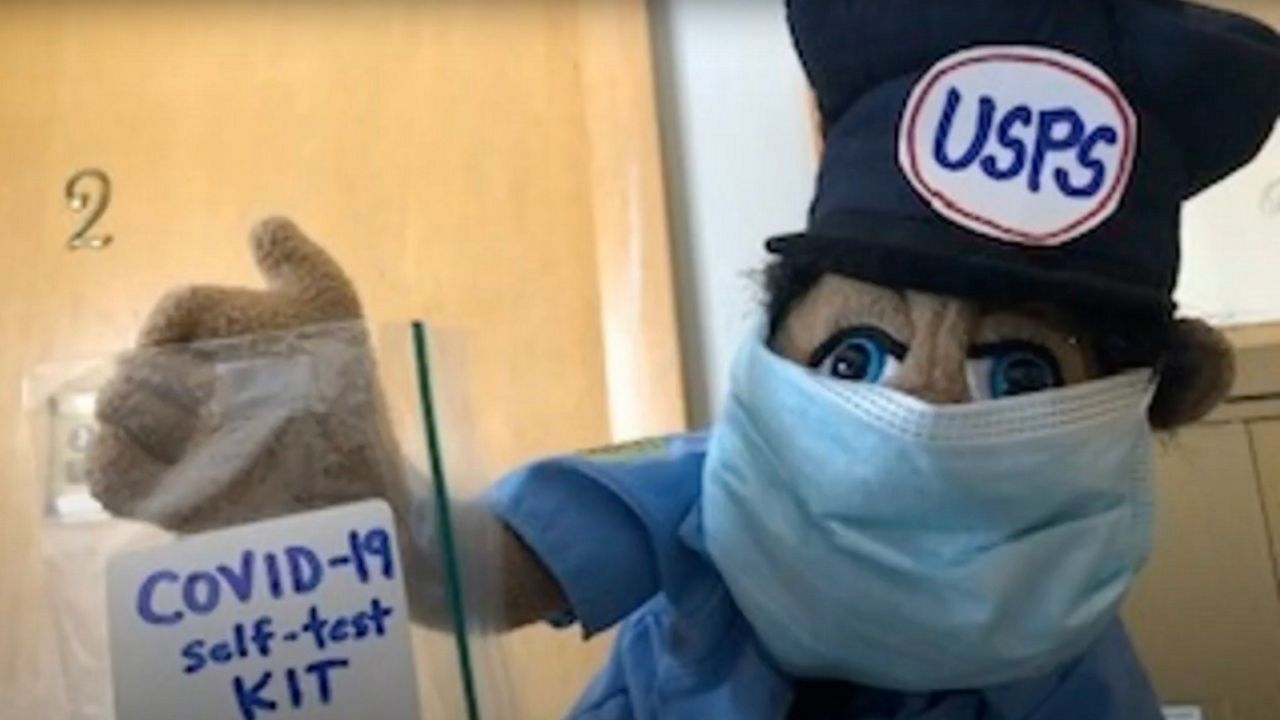MILWAUKEE — Could you solve a major world issue in under a minute?
That was the challenge for seventh graders in Sarah Kopplin’s world geography class at Shorewood Intermediate School. For the past few years, Kopplin has had her students enter the international video contest run by nonprofit Population Connection, which challenges young people to think up sustainable solutions to global challenges — all in a 60-second clip.
“This allows them to have a real-world voice,” Kopplin said. “To think about global issues that are really facing us right now.”
Henry Zitoun and Kennedy Merkel, both part of Kopplin’s class, took home first and second place prizes in this year’s contest.
Zitoun’s video, which won first place in the “Promoting Environmental Justice'' category, focuses on the issue of e-waste. He said learning about the huge number of electronic devices across the world made him curious about where they all end up.
“I found that there are more devices than there are people in the world,” Zitoun said. “And then I started to wonder, where do all those devices go when people are done with them?"
Zitoun learned that many old devices end up in dumps located in poor countries — like Agbogbloshie, a massive e-waste site in Ghana. He thought it was unfair that countries like Ghana were left to deal with the health and environmental effects of e-waste pollution.

In his video, Zitoun suggests that people all over the world should demand more sustainable devices and find ways to upcycle e-waste instead of just discarding it.
“We have a choice. We can continue down the same path of destruction, or we can work together towards a greener, more sustainable solution to e-waste,” Zitoun says in his video. “We must decide together.”
For Merkel’s video, which got second place in the “Strengthening Global Health” category, she found inspiration closer to home.
Merkel had seen how the COVID-19 pandemic was affecting her community, and how coronavirus tests could be hard to come by. An everyday interaction gave her an idea for how to help make testing more efficient.
“I was just eating lunch watching the postal worker drop off our mail, and I thought how convenient it was that they already go to everyone's house each day,” Merkel said.
In her video, Merkel proposes a solution to the testing shortage: A postal worker (portrayed in the video by a masked-up hand puppet) could drop off at-home coronavirus tests to people who need them, and the residents could log their own results.
While doing research for her video, Merkel was most surprised by just how big the numbers related to the pandemic were — how many people were getting sick or dying from COVID-19, and how many tests were needed to stop the spread.
“I hope [people who watch the video] realize how important COVID tests are,” Merkel said. “That, along with vaccines, is really what is going to move us along in the pandemic and hopefully get us to the end.”

For Merkel, filmmaking is already a bit of a hobby — she said she’s been making video skits with her brother for years. But for Zitoun, filmmaking was a new challenge to tackle.
And for Kopplin, this year added its own twist: All the students were learning remotely while working on the video project, so compared to past years, it was a “very unorthodox process” of helping them research their topics and figure out the video software.
Still, the two students were awarded out of more than 3,000 videos from 44 different countries in this year’s contest, according to Population Connection. Both students said they were thrilled to learn their work had been recognized out of the global entries — “I was over the moon,” Merkel said.
Along with the awards (and the cash prizes), Kopplin said she hopes her students also gained some useful skills and the understanding that young people can take on big challenges too.
“A lot of times, people underestimate the abilities of young people or their ingenuity,” Kopplin said. “I'm hoping they just realize they have the confidence to tackle big things, and also that their voice is important.”
The students said they were glad to get some experience with real-world skills — like editing down scripts or figuring out reliable online sources — as well as learning about important world issues.
COVID-19 and the question of testing is still “part of the now,” Merkel pointed out, as we’re still living through the pandemic. And even though e-waste pollution in Ghana may seem like a distant problem, Zitoun said it still hits close to home.
“It doesn’t really matter how far away it is,” Zitoun said. “Everybody deserves a happy life.”



